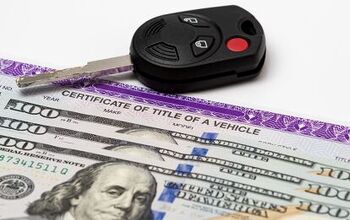Yet Another One Bites The Dust: Miles Electric Gone Bust

The electric vehicle revolution has eaten another one of its children. “U.S. electric car manufacturer Miles Electric Vehicles filed for chapter 11 bankruptcy protection early on Tuesday, court documents showed, highlighting the difficulties faced by battery-powered vehicles in gaining wide market acceptance,” says Reuters.
TTAC has never been bullish about EVs. This has nothing to do with ideology. Cars by nature will have a very limited market as long as they take hours to fill up, are for all intents and purposes unusable beyond a 40 mile radius from your home, and are priced out of the market.
Miles Electric, founded in 2004, made headlines with the first street-legal Chinese-made automobile sold in the United States. Its ZX40 was made by FAW Tianjin, a subsidiary of Volkswagen and Toyota joint venture partner FAW.
Miles sold into one of the few niches where EVs make sense: It made what usually are called ESVs, essential services vehicles, low-speed all-electric means of transportation used in parking enforcement, security, shipping and delivery, and grounds maintenance.
There, the usage pattern matches the technology.
This small, but possibly lucrative fleet market is now pretty much left to little-known Texas-based Good Earth Inc., makers of the even lesser known FireFly electric three-wheelers that help police departments all over the U.S. put parking tickets under your wipers.

Bertel Schmitt comes back to journalism after taking a 35 year break in advertising and marketing. He ran and owned advertising agencies in Duesseldorf, Germany, and New York City. Volkswagen A.G. was Bertel's most important corporate account. Schmitt's advertising and marketing career touched many corners of the industry with a special focus on automotive products and services. Since 2004, he lives in Japan and China with his wife <a href="http://www.tomokoandbertel.com"> Tomoko </a>. Bertel Schmitt is a founding board member of the <a href="http://www.offshoresuperseries.com"> Offshore Super Series </a>, an American offshore powerboat racing organization. He is co-owner of the racing team Typhoon.
More by Bertel Schmitt

































Comments
Join the conversation
A company like that would be a in good position, later on, to move into more main-stream vehicles. BUT, it never seems to work out like that. I've had some people come back from Georgia and comment on these communities, and whole towns, where people rely a lot of electric golf carts. Supposedly there are golf-cart parking-only spots, and golf-cart only roads. If I lived in a place like that, it would be great to have a slow speed sub-$10k electric vehicle to run around town in.
Electric cars are viable and they come from real companies and are cost effective versus with their peers. Tesla may not report monthly, but its worth reviewing Tesla sales compared to other competitors of their class. Look at Nissan USA May sales, sure the LEAF is not at 1ok per month yet, but there are many Nissan trucks and cars that sell in lower volume than the LEAF. Tesla Model S is even more intriguing, Nissan brand may not consider it a competitor, but Infiniti Division sure does, and there are be dealerships for Porsche, Jag, Audi etc. who rue the success of Tesla in their locality.
Ie seen Taylor-Dunn vehicles around forever, and brief research says theyve been making Evs since 1949.
What makes Miles stand out is that it was the company that spawned Coda, the feisty EV upstart written about a lot in the automotive press, until its recent demise. Before Miles downfall, in the last ten years, there has been a slew of such struggling companies that have sourced their little "N(neighborhood)EVs in China. Tiger Trucks of Texas is one that comes to mind...Zap, Wheego, and Greetech are others.